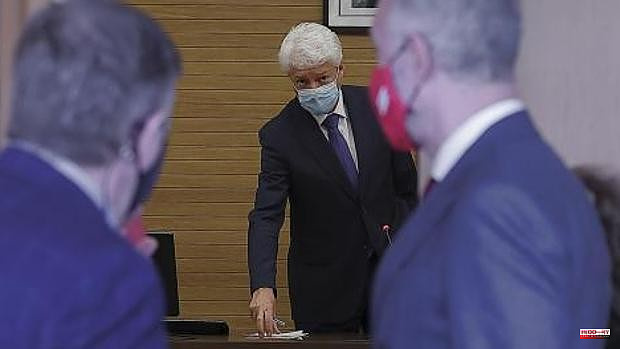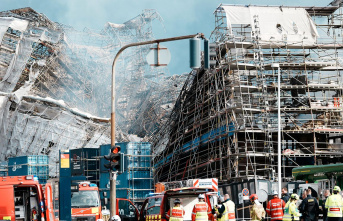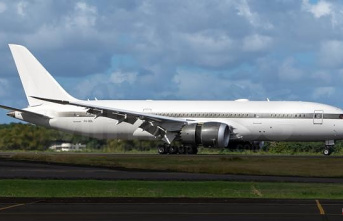The judicial investigation into the Gali case will remain alive for at least six more months. This has been decided by the investigating judge, the Zaragoza magistrate Rafael Lasala. He has done so after the Provincial Court of Zaragoza, at the request of the State Attorney and the Prosecutor's Office, decided the provisional dismissal of the criminal charge against former minister Arancha González Laya. But that dismissal is not a definitive shelving; if more incriminating evidence appears, the accusations would be reactivated. And Judge Lasala considers that the investigation proceedings that are pending make it necessary to maintain the investigations, given their complexity.
Given that one of the crimes being investigated is that of cover-up, and it prescribes after fifteen years, there are still 14 years to go to be able to reactivate the accusations for this clandestine operation that the Government deployed in April 2021, to clandestinely introduce in Spain the leader of the Polisario Front, the Saharawi Brahim Gali, and cure him of Covid in the public hospital in Logroño.
Now, Judge Lasala's decision, for the moment, declares this legal case complex. And, as contemplated by the Spanish legal system, this will allow the proceedings to be extended for another six months, once the ordinary period of one year that governs, in general, for any instruction has been fulfilled.
These criminal proceedings were opened by Lasala on May 31, 2021, a month and a half after the Government smuggled Gali into Spain in agreement with the Algerian authorities, who protect the Saharawi, a declared enemy of Morocco. That furtive reception of Gali in Spain triggered a severe diplomatic crisis between Spain and Morocco. But a year later, last April, Sánchez took a radical swerve, distanced himself from the Polisario Front and Algeria, and aligned himself with Morocco's theses on the former Spanish Sahara, which has irritated Gali and his people.
Now, Judge Lasala wants to delve into the alleged crime of false documents, which is also part of his investigations. And in the connections that this can have with that of prevarication. It remains to be seen if these new investigative procedures allow new data to surface that will reactivate the investigations regarding these crimes. It must be taken into account that Laya was accused precisely of the crime of prevarication, in addition to the cover-up.
Last May 31, Judge Lasala signed the order to extend the investigations for another six months. That car, to which ABC has had access, has just been notified to the parties. "The result of the proceedings already agreed could derive an incriminating charge against someone, which is why the declaration of complexity of the case becomes an essential budget," says the magistrate in his order. In it, he underlines that two investigative procedures are pending that he understands to be of special relevance: information requested from the Polisario Front Delegation in Spain, on the one hand; and the taking of a statement from Luali Brahim, Gali's son who accompanied him on his entry into Spain and who carried the false passport with which the Polisario leader was registered at the Logroño hospital, under the false identity of Mohamed Benbatouche, a supposed retired Algerian ambassador.
The magistrate warns that, from the result of these ongoing investigations, "new statements could be derived or the requirement of other documents and / or reports in order to obtain evidence on the possible falsehood and prevarication investigated."
Judge Lasala found signs of prevarication, cover-up and false documents in this clandestine operation activated by the Government of Sánchez and executed from the leadership of the Ministry of Foreign Affairs, with the active participation of the Air Force General Staff. Gali was secretly introduced by the Zaragoza Air Base, without being subjected to the mandatory passport and border controls. As there was no record of his entry, he evaded the National Court, which had been after him for some time, investigated for alleged crimes. The last request to locate Gali issued by the National High Court was processed just five days before he sneaked into Spain through the Zaragoza military base.












